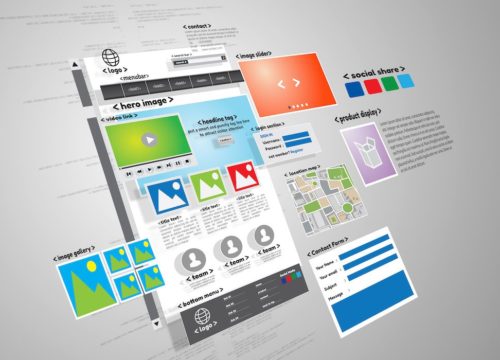8 Ways to Safeguard Your Website Right Now

The number of cyber-attacks have increased dramatically. In fact, they have risen by 50% year over year. Unfortunately, we can’t guarantee that cyber-attacks will decrease in the following years. This suggests that website security is more necessary than ever, even if you are only a small business owner. Check out the website security tips below to protect your website from cyber criminals:
1. Software Updates
Most website security and hosting software is open-source (thus, free), so their code is easily available to hackers. When your platforms or scripts are out-of-date, they are more vulnerable to cyber-attacks. Moreover, many hackers use web monitoring tools to find websites that are using old apps.
Keep your software updated manually or automatically (if this option exists) at all times. Managed hosting is also a great way to ensure that your software stays up-to-date and is less open to attacks. If you’re using WordPress, check for the update icon in the top left corner next to your site name.
2. Extra Website Security Software
Updating everything is only part of your website’s security. You also need additional plugins and applications designed to prevent hacking attempts. On WordPress, look for plugins such as Bulletproof Security and iThemes Security; other platforms have similar tools (Drupal, Joomla, etc.).
Netsparker is a good tool for testing SQL injection and XSS, and it offers free and trial editions. OpenVAS is an open-source security scanner that’s good for testing known vulnerabilities, although it can be difficult to set up.
3. Web Application Firewall (WAF)
WAFs are important defense tools against common attacks. They are designed to inspect incoming traffic and identify and block malicious requests, protecting your website from threats like cross-site scripting (XSS) and SQL injections.
WAFs are as important as installing an antivirus on your computer. Some of the best-known WAFs are Imperva, F5, and Citrix.
4. SQL Injections
SQL Injections are some of the most common website hacking techniques. Your website is vulnerable to SQL injections when you have a web form or URL parameter that allows outside users to supply information. Hackers could insert code into them and hack into your database, which contains sensitive info, such as credit card numbers.
A widely used website security method to stop SQL injections is using Parameterized Queries. With Parameterized Queries installed, your code will have specific enough parameters so hackers don’t have room to interfere with them.
5. Cross-Site Scripting (XSS) Attacks
XSS attacks are also very common website security vulnerabilities in which malicious scripts are injected into otherwise benign and trusted websites. The hacker intends to change page content to steal login information.
Defending against XSS attacks is similar to using parameterized queries against SQL injections. Make sure any code you use on your website for functions or fields that allow input is explicit in what’s allowed, so there’s no room for malicious JavaScript. Content Security Policy (CSP) is another powerful defense tool against XSS attacks.
6. HTTPS
HTTPS (Hyper Text Transfer Protocol Secure) is a widely used protocol for secure communication over a computer network. Using this protocol means that links between your server and a client will be protected by either SSL (Secure Sockets Layer) or the newer Transport Layer Security (TLS).
The HTTPS certificate is absolutely necessary if your website supports online transactions and ensures that personal data, credit card information, and passwords are protected.
7. Secure Passwords
Many companies don’t have strict enough password policies, and their staff might endanger their website with weak passwords. Ensure that everyone in your staff has strong passwords (using a password generator such as this or this) that include special characters, numbers, and letters.
Alternatively, use a credential vault that creates highly secure passwords for users. Although passwords will be changed frequently, users wouldn’t need to know the password, they’d need to validate their credentials.
8. Frequent Back-ups
Even with all the website security preventions in check, the chance for your website to be hacked at some point is quite high. The best way to recover from a cyber-attack is to back up your website and database files regularly.
Backing up your data depends on the type of your website and how often you update it. For instance, online retailers who take orders constantly should back up their websites more often. In WordPress, there are several backup plugins at your disposal, such as BackUpWordPress.
Even if you’ve just launched your website, it’s important to establish a strong website security plan right from the start. Thousands of hackers are waiting for an opportunity to breach websites and steal valuable information daily. Don’t wait until you become a cyber victim, safeguard your website now.
Are you wondering if your website is at risk? Contact us, and we’ll help you evaluate any security concerns. If you’re planning to revamp your website, we can even provide web design and development services (we work exceptionally well with franchises).




![The Ultimate Small Business Digital Marketing Guide [2024]](https://brightpinkagency.com/wp-content/uploads/2016/11/digital-marketing-standards-2017.jpg)


